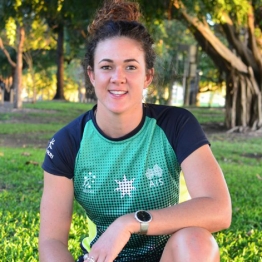TheGo asks our local, qualified and respected nutritionists a question that has been puzzling you. This week it’s about that white liquid that gets so many tongues wagging. There are so many cow’s milk alternatives around today, but what are the best options nutritionally?
If you have a food query for our expert panel to answer, please email [email protected].

Mitch Smith – Health Management
Let’s start by naming the different types of milk — cow’s, almond, soy, rice, goat’s and oat milk; and then we have full fat, low fat, lactose-free and long-life… who’s a little confused?
How many times have you heard your best friend tell you that dairy is bad for you or not to drink skim milk because it has added sugar or less calcium? These are some of the interesting myths that are currently floating around. Dairy is a crucial component to achieving optimal health as it is high in vitamins and minerals and is a great source of protein, carbohydrate and, of course, calcium. Why else do we start our lifetime consuming the most nutritious food source there is… breast milk!
But a small percentage of the population have some form of intolerance to lactose and require a suitable alternative. Almond milk is all the rage at the moment, however, it’s very low in protein and carbohydrates, so it’s not a suitable alternative. The better choices include lactose-free and calcium-fortified oat milk.
Look for the highest protein and calcium containing milks and you have yourself a white moustache; and a winner!
About Mitch Smith
Health Management
As an accredited dietitian and accredited sports dietitian; it’s Mitch’s mission to debunk as many nutrition myths as possible. He works with elite professional athletes from a range of sports such as triathlon, body building and football, as well as the Cairns Taipans NBL team (don’t hold that against him!). Mitch has a passion for helping men lose weight and get fit and healthy. He practises what he preaches and translates complicated nutritional jargon into easy-to-understand advice. Mitch has just completed his first Half Ironman in Cairns.

Hannah Gentile – Eat Well Australia
The closest milks to cow’s are goat and soy. Soy is high in protein and fibre, has cancer-fighting properties, and is low in saturated fat. Unfortunately, up to 50% of people who are intolerant to cow’s milk are also intolerant to soy and/or goat milk. Soy also has a high sugar content and promotes oestrogen, so is not recommended for those with a risk of oestrogen-dependant breast cancers. Goat milk is lower in folic acid and Vitamin B12 – not ideal for pregnant women.
Almond milk is full of good fats, potassium, magnesium (great for the thyroid), and Vitamin E. It is also lower in sugar. On the downside, it can be low in protein and high in sodium. Coconut milk also contains some great properties, however is high in saturated fat. Rice milk is the best option for individuals who cannot tolerate dairy, soy, gluten or nuts. It has the lowest fat, but a higher amount of carbohydrate, so is not a great option for those with diabetes. It is also low in calcium – a problem with many plant-based milks which have to be fortified.
Oat milk shares commonalities with rice milk, however is not always appropriate for those who are gluten free. For children, cow’s milk is the weaning milk of choice. It is closest to human milk and contains nutrients needed as part of a healthy diet including calcium and Vitamin D. As such, cow’s milk and breast milk remain the only recommended milks for children under five years old.
About Hannah Gentile
Eat Well Australia
Hannah Gentile has a Masters of Nutrition from Deakin University. She has spent the past 10 years working in the fields of behavioural science, health, and nutrition with women and children across New Zealand and Australia. Hannah decided to focus her nutritional background on women and children after experiencing a high-risk pregnancy. Addressing the need for good quality information, especially for mothers, Hannah is determined to provide a service women can turn to during the most important stages of their life.
Brie Salagaras – Compleat Nutrition
My recommendation is to keep it simple. Cow’s milk is the best variety of milk available as it’s not only the highest source of calcium besides rice and soy milk; but it’s also the highest source of protein when compared to non-fortified products (oat, goat, soy, and rice milks).
Plus cow’s milk is available in a variety of fat contents which are suitable for everyone over the age of two. Yes, it can be argued that some other milks are lower in saturated fat or provide a greater amount of protein; however — on the whole — low fat cow’s milk provides the greatest overall amounts of calcium, protein and saturated fat content when compared to other milk alternatives.
If an individual has certain dietary requirements, for example a lactose intolerance, then they’ll have to select a milk alternative. Most of the time these products are chosen on individual taste, however, I would suggest picking a replacement product with high levels of calcium, for example rice or soy milk. These are the closest alternatives for calcium and saturated fat.
About Brie Salagaras
Compleat Nutrition
Brie has studied a Bachelor of Health and Exercise Science, Masters of Nutrition and Dietetics and a Certificate of Diabetes Education. She is currently completing another masters degree in Exercise Physiology Chronic Disease Rehabilitation. Brie is a strong advocate for a holistic approach to a healthy living and incorporating both a healthy diet and exercise into each and every day.
The information provided is general in nature and should not substitute any health or medical advice. Please consult a qualified professional to assist with any specific conditions or queries. The opinions expressed as those of the individual columnists. You know the drill…












I found this article really useful. I’d also love to know whether coke zero or pepsi max is any better than normal soft drink, or should I just stay away from it all?
Thanks James – good question. We’ll add that one to the list for the panel 🙂
I am a bit confused with Hannah’s article. She starts with saying that Soy is cancer-fighting, but then states that it is high in oestrogen and should be avoided by women who maybe at risk of breast cancer.
Also I don’t believer there is fibre in soy milk, or any other milk for that matter. ?????
My apologies that this may seem confusing. Let me try and reword it. Soy has been shown to have some cancer fighting properties. However it is of note that not all cancers are created the same. Some, such as certain types of breast cancer are Estrogen fed. Soy can enhance estrogen in the body. Although this is minimal, we did think it was worth mentioning as an informed choice for those living with many different cancers. Soy is a plant based milk. As with other plant based milks it is a source of dietary fibre. We hope this satisfies your questioning.